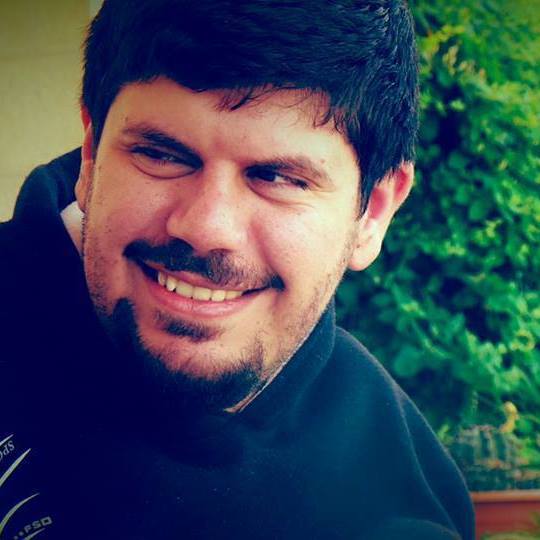What societies remember, and what they forget, is shaped not only by historians but by journalism. From wars to natural disasters, the news does not simply record events; it decides which fragments endure in collective memory, and which fade into silence.
As the final year of the Second World War raged, the mechanisms of Nazi Germany’s efforts to exterminate the Jewish population were in full effect. Although the Holocaust today is undeniable to us in its evidence, the extent to which Nazi atrocities were occurring was not public until journalistic outlets such as the Swiss publication Neue Zürcher Zeitung, The Times of London and The New York Times published a report made by two escapees from the death camp Auschwitz about their experiences.
In his book ‘The Escape Artist’, Jonathan Freedland describes how the media coverage of the Vrba-Wetzler report forced the Holocaust into public consciousness as it was unfolding, despite political and media hesitation at the time.
The role of journalism has long been a bulwark against denial, preserving memory and insisting the world be witness. Tanja Bosch, Professor of the Centre for Film and Media Studies at the University of Cape Town, explained the link between memory and journalism by writing in a 2019 publication:
“There is a strong link between collective memory production and journalistic practice, based on the proposition that journalists produce first drafts of history by using the past in their reportage. It serves as one of society’s main mechanisms for recording and remembering, and in doing so helps shape collective memory.”
Gaza today demonstrates a painful parallel. Standing as one of the most internationally reported conflicts today, yet no international press is permitted entry, even as local journalists are killed in unprecedented numbers.
Yet, through the work of journalists, and the use of social media by locals, the atrocities of what the ICC has deemed a genocide are unfolding before us, the memory of which will pass into the consciousness of future generations and societies for decades to come.
News coverage generates active perception building of places, concepts and people within an audience. Depending on the event being reported and the type of coverage, a specific memory or perception is endowed in the consciousness of the public. This dynamic extends beyond war zones. Even in natural disasters, what is remembered often depends on the angle of media coverage.
Narratives of a hierarchy of states can also be projected through media coverage. An article in the Multidisciplinary Digital Publishing Institute about media coverage of the 2022 Pakistan floods explored how global north media paid little attention to the long-term systemic impacts of the flood, only concentrating on the immediate crises. This reinforced ideas of dependency and helplessness, focusing on charity and disaster, helping create a post-colonial narrative of a 1st and 3rd world.
Journalists perhaps would not think of themselves as such influencers of societal perception, but references to the past help journalists make sense of the present and provide shorthand explanations, contextualising today’s events. Journalist and author Professor Barbie Zelizer describes the role of the journalist and memory in a piece called ‘Journalism’s Memory Work’:
“Recounting the present is laced with an intricate repertoire of practices that involve an often-obscured engagement with the past. This renders journalism a key agent of memory work, even if journalists themselves are averse to admitting it as part of what they do.”
Journalism as a Tool to Forget
Memory, and its erasure, is also a result of journalism's use as a tool of recollection within societies across the world. Following the Bosnian War of the 1990s, national news media was divided ‘ethnically, not ethically’ between Serbs, Croats and Bosnians, whereby selective memory ignored certain events, such as Srebrenica genocide denial remaining common in Republika Srpska’s Serb-controlled outlets. Due to the brevity of most news outlets, there is little capacity to bring light to everything, but what is not included can often be just as telling.
PhD candidate Veronique Labonte, of the Graduate School of International Studies, explains the role of memory as a tool in Bosnia and Herzegovina, saying:
“Journalists and media activists often become custodians of memory, archiving fragments of experience that would otherwise be excluded from the historical record. - Narratives of war and its aftermath influence identities, relationships between groups, and the very possibilities for political and social change. - The politics of memory in Bosnia demonstrates how journalism is not only a record of events but also an active force in shaping the moral imagination of publics. What is remembered and how it is told influences whether societies lean toward justice or denial.”
Similarly, in Chile during the 1970s and 1980s, the media was heavily influenced by the authoritarian government of General Pinochet, whose regime enacted many human rights violations. Many of these crimes were not published or investigated until after the fall of the regime in the 1990s, when the remembrance of the thousands of ‘disappeared’ persons persisted as an act of rebellion against the dictatorship. As the academic Rosemary Barbera described in an essay called Community Remembering: Fear and Memory in a Chilean Shanty Town:
“Knowledge is a significant form of power, and when memory can be controlled, knowledge is likewise controlled and becomes subjugated. Being denied memory is a form of abuse. Being able to remember becomes a political act.”
Selective memory is not just a legacy of authoritarian regimes; it continues to shape global coverage of conflict today. For example, the results of a survey by the Israel Democracy Institute found that 78% of Jewish Israelis thought that Israel is making efforts to avoid causing suffering to the Palestinian population. From this we can perhaps question what Israeli media chooses to ‘remember’.
Why We Will Not Remember Some Conflicts
Although media coverage is often a reflection of a pre-existing geopolitical precedent, it also is subject to the interest of the viewers. Attention is often given to conflicts involving major powers and alliances that can carry broad implications for international diplomacy, security and economies, such as trade routes and foreign investment.
This means that a core issue with the contemporary information environment is that many of the world’s most deadly conflicts/crises remain under-represented in global news, such as those in South Sudan, Haiti, the Congo and Yemen.
Dr Zahera Harb, Director of Journalism Postgraduate Studies at City St George's, University of London, speaking with Al Jazeera Media Institute said,
“It’s not about journalists; it’s media organisations, their owners, and the political systems they operate within that dictate which conflicts matter. Political proximity, not geography, drives attention. Audiences can care about Yemen or Sudan if you give them the human element, the context, and the explanation of why events are happening.”
The 2025 Global Peace Index Report found that global news coverage of conflicts disproportionately focused on highly developed or upper-middle-income countries. By contrast, wars in less economically developed states, such as Ethiopia and Burkina Faso, each with more than 20,000 recorded civilian deaths, received far less attention. In Ethiopia, this imbalance was further reinforced by a government-imposed media blackout designed to restrict reporting on the civil conflict.
Breaking news amid immediate and ongoing conflicts/humanitarian crises has also meant a saturation of ‘negativity’ among the public. Audiences suffering a ‘negativity’ bias and news fatigue surrounding conflicts is also another factor of why attention fades around certain events. One research report concludes that news headlines became more negative between 2000 and 2019 within popular US media, with another study concluding that negative wording within articles correlated with higher audience traffic, incentivising further negative wording in reporting.
Founder and Media Strategist for solutions journalism organisation Inclusive Journalism, Sanne Breimer, said in a statement to Al Jazeera Journalism Review that,
“Journalism has been so explicitly focused on what is going wrong in the world that we’re actually not doing service to the people. There are processes, peace talks, and everyday coping strategies that rarely get covered. If a conflict is new, then it’s breaking news. The longer it continues, the more the news angle disappears. That has to do with a narrow focus of what we nowadays think journalism is and should be.”
Today, choices about what is told and what is ignored will shape not only tomorrow’s history books but also the conscience of future generations. If journalism is, as Philip Graham once said, the “first rough draft of history”, then its greatest responsibility is not just to inform but to remember and to resist the quiet violence of forgetting.


























![Palestinian journalists attempt to connect to the internet using their phones in Rafah on the southern Gaza Strip. [Said Khatib/AFP]](/sites/default/files/ajr/2025/34962UB-highres-1705225575%20Large.jpeg)



















